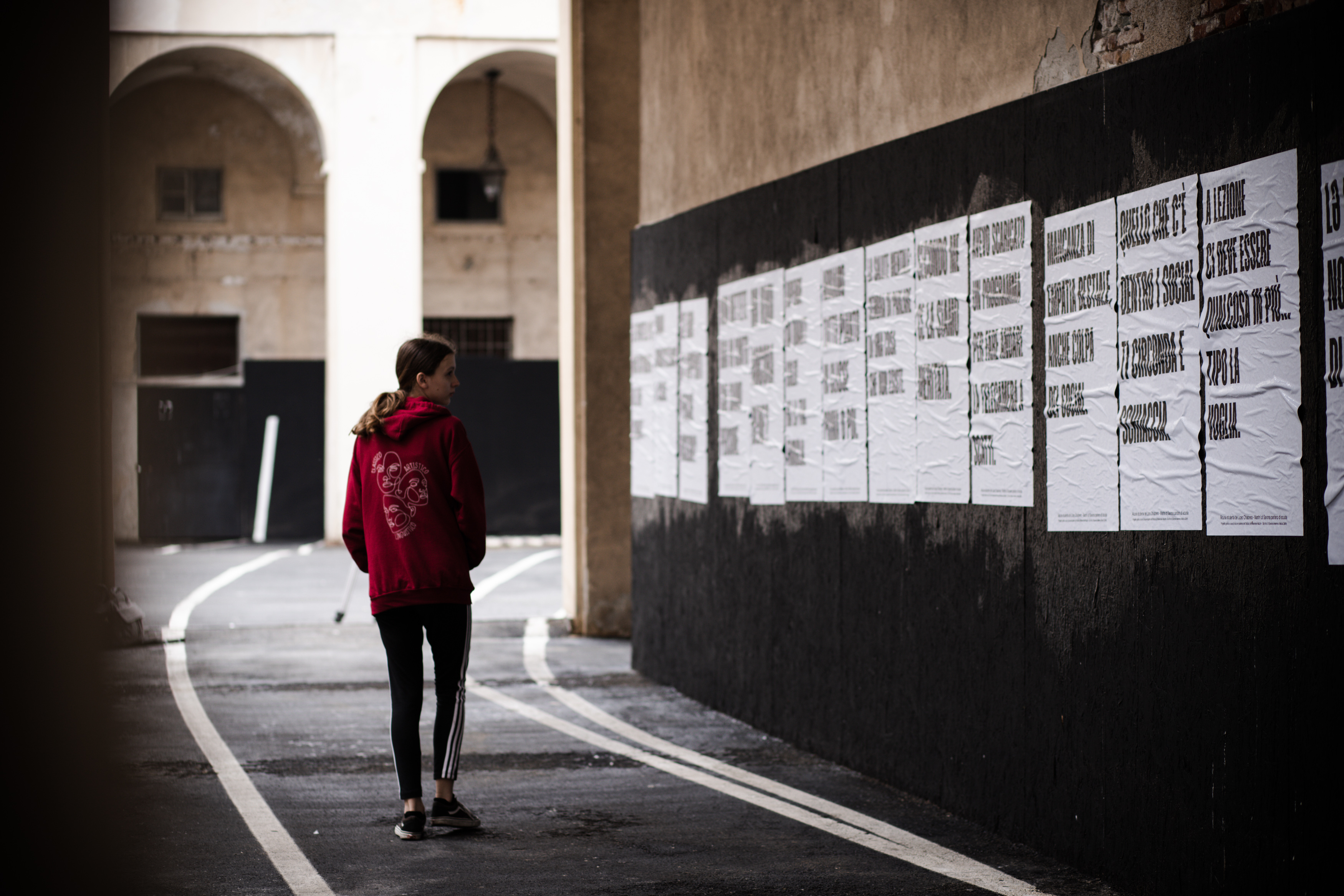If the human voices that make up this story are many and varied, its incipit is instead to be attributed to a virus, to a non-human entity that in the pandemic months seems to have whispered advice in our ear: the dismantling of the public service it does nothing but separate the school from its function of social, political, territorial garrison, reducing the guarantee of free time to learn to think and understand, before the injunction to produce condemns it. After all, as Lucio of the Barbiana school said, “school will always be better than shit.” So, the story that we have decided to tell begins with a non-human whisper that intertwines with the words of the students met along the way.
The school has reopened as it was born after a snowfall within the assemblies organized with the reopening of schools at the end of the Covid-19 emergency, to give a voice to students who hardly had space to speak during the pandemic period.
Continuing her practice of visual self-investigation, Sara Leghissa, in complicity with Marzia Dalfini and Maddalena Fragnito, met students from different schools, opening up spaces for listening and discussion from which posters posted in some cities and accomplice spaces were produced. around Italy. If the 2021 publication Will you marry me? was designed as a tool of action connected to this practice, this new book is rather a tool for reflection: a story of the long months in which schools have been closed and an investigation into the state of health of the school itself and of the bodies that each day they cross it.
Maddalena Fragnito’s text returns the chorus of reflections that emerged in the meetings with the students by incorporating their voices and investigating issues such as the relationship between technologies and the body, psychophysical health, the school evaluation system, occupations and the return to school after emergency, the repression that minors suffered as soon as they left home. In response to the strategic indifference of a country experiencing the progressive dismantling of public schools and public services in general, The school has reopened as after a snowfall is a claim to the possibility of imagining a different school from within, «in a political, social and ecological more joyful and combative than the material representation of the ruin of the public education system, of the end-of-the-world aesthetics and politics that are pervading everywhere by now».
